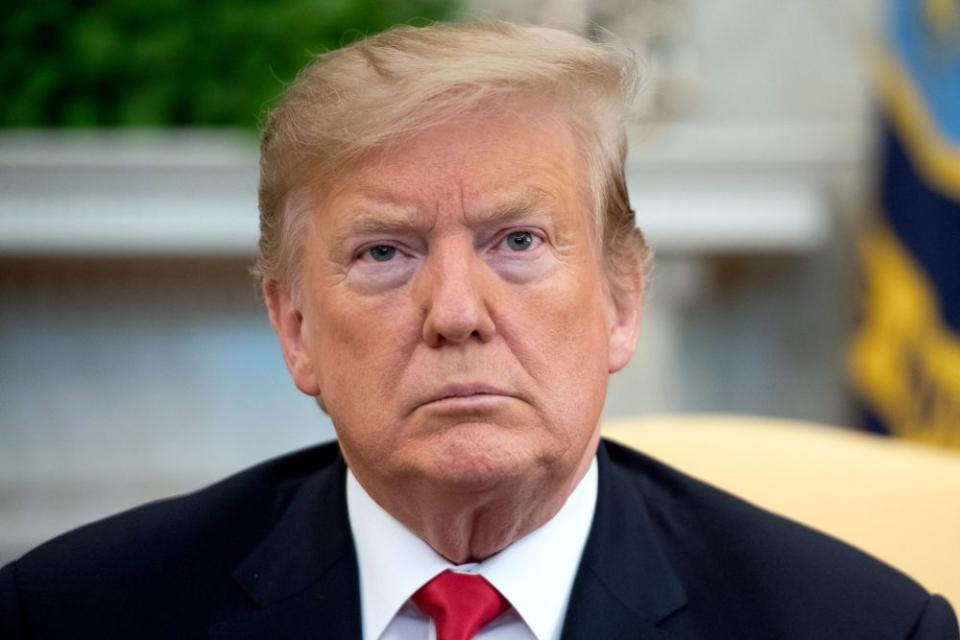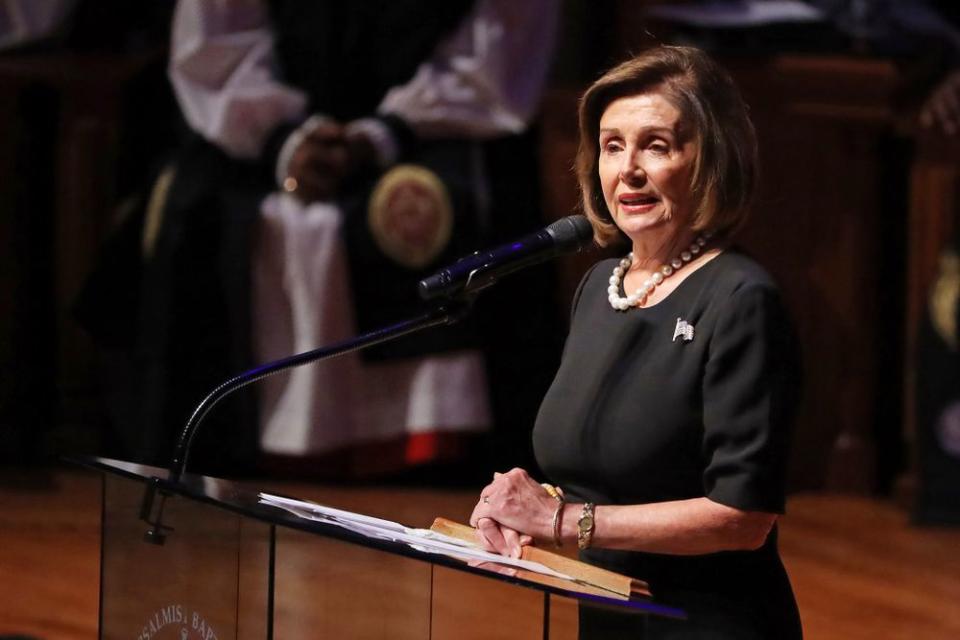Donald Trump Impeached by House of Representatives Over Ukraine Scandal
In a history-making vote that will force President Donald Trump to stand trial in the Senate in the new year, the House of Representatives on Wednesday night impeached him on charges of abuse of power and obstruction of Congress in connection with his Ukraine scandal.
Trump, who has adamantly denied wrongdoing despite testimony otherwise, is only the third president in United States history to be impeached.
By a vote of 230 to 197 (and one present vote), the House’s Democratic majority overcame Republican resistance in the minority for the abuse of power charge. And by a vote of 229 to 198 (with one present vote), the House voted for the obstruction of Congress charge.
Trump will now be tried in the Republican-controlled Senate and a conviction, which would require the votes of nearly two dozen Republican senators, is far from certain. Many conservative lawmakers have said they are reluctant to proceed with a case against Trump, contending his impeachment amounts to a revenge scheme by liberals following the 2016 election.
Earlier Wednesday, House Speaker Nancy Pelosi said impeachment was the House’s constitutional obligation after Trump allegedly pressured Ukraine to investigate his political rivals.
“Today, as speaker of the House, I solemnly and sadly open the debate on the impeachment of the president of the United States,” she said. “If we do not act now, we would be derelict in our duty. It is tragic that the president’s reckless actions make impeachment necessary. He gave us no choice.”
As has become habit, Trump live-tweeted Wednesday’s proceedings in the House. This week, the White House also released an open letter from the president blasting impeachment.
The Senate trial is expected in early January.
Reports last week indicated that Republicans there were hoping to quickly acquit the president and move on.

A U.S. president has never been removed from office via impeachment. Both Presidents Andrew Johnson and Bill Clinton were impeached, but were later acquitted in the Senate. President Richard Nixon resigned before he could be impeached and face trial over the Watergate scandal.
Investigators say President Trump withheld some $400 million in military aid from Ukraine while he pushed Ukraine’s president, Volodymyr Zelensky, to dig into former Vice President Joe Biden and Biden’s family as well as probe a conspiracy theory about the 2016 election.
Vice President Biden is the leading candidate to challenge Trump in 2020.
Trump’s behavior toward Ukraine — which he insists was “perfect” — became public following an anonymous whistleblower complaint within the federal government.
There have been regular calls from liberals for Trump’s impeachment throughout his presidency, largely surrounding the investigation into Trump’s ties to Russia and Russian interference in the 2016 election. (Robert Mueller’s investigation did not find a conspiracy between the president and Russia.)
RELATED: Trump ‘Leaves No Choice’ but for Democrats to Move Toward Impeaching Him, Pelosi Says
Speaker Pelosi long avoided going after Trump for impeachment during the Mueller investigation.
However, she changed course after House Democrats became aware of the whistleblower’s concerns over Ukraine.
During the ensuing investigation, the House Intelligence Committee interviewed a number of witnesses with knowledge of the Trump administration’s relationship with Ukraine, including William Taylor, the top U.S. ambassador to Ukraine.
Taylor testified that the U.S. military aid to Ukraine was withheld until President Zelensky agreed to appear on CNN and announce that Ukraine was investigating Biden and his son’s involvement with a Ukrainian oil company as well as alleged Ukrainian interference in the 2016 election.
Taylor also testified that President Trump’s personal lawyer, former New York City Mayor Rudy Giuliani, was coordinating backchannel communications between the Trump administration and Ukraine for months leading up to a July 25 call between Trump and Zelensky in which Trump asked for a “favor.”
The House voted to move forward with public hearings in November where more details were revealed, including testimony from Gordon Sondland, the U.S. ambassador to the European Union. In his Nov. 20 testimony, Sondland explicitly said that President Trump was seeking a “quid pro quo” with Ukraine and that “everyone was in the loop. It was no secret.”
Throughout the two-and-a-half month investigation, President Trump and the White House repeatedly called the investigation a “witch hunt” and a “sham.” Trump claimed Tuesday in an angry open letter to Pelosi that he was treated unfairly during the impeachment process.
In September, three days before Pelosi called on the House to move forward with the impeachment inquiry, Trump tweeted that his July 25 call with President Zelensky was “a perfectly fine and routine conversation.”
Republicans in Congress, meanwhile, have mounted a shifting series of defenses of President Trump including that Ukraine’s government was not aware of the withheld aid and so could not have been acting under pressure. Other lawmakers, including Trump, have maintained he was acting to root out corruption in Ukraine and, as president, has a broad mandate in conducting relationships with foreign governments.

The White House refused to cooperate with the impeachment investigation, opting not to send top administration officials to testify during the hearings. The White House also allegedly tried to hide the full transcript of the call, moving it between computer systems and making it harder to find, according to the whistleblower complaint. Later, Lt. Col. Alexander Vindman, the director for European Affairs on the National Security Council, told investigators the transcript that the White House eventually released omitted key evidence, including Trump and Zelensky explicitly discussing Biden’s son and his connections with the Ukrainian oil company Burisma Holdings.
The House Judiciary Committee hosted two public hearings in early December before the House announced it would draft two articles of impeachment against Trump: abuse of power and obstruction of Congress.
“Our president holds the ultimate public trust,” Rep. Jerry Nadler, the Judiciary chair, said during a December news conference announcing the articles of impeachment. “When he betrays that trust and puts himself before country, he endangers the Constitution, he endangers our democracy and he endangers our national security. The framers of the Constitution prescribed a clear remedy for presidents who so violate their oath of office. That is the power of impeachment.”
Democrats debated throughout the investigation about what impeachment charges they would bring against the president and how to describe his actions.
“Most people have a fundamental, passing awareness of what bribery is,” University of North Carolina law professor Michael Gerhardt told USA Today in November. “Democrats can plug into that.”
RELATED: Nancy Pelosi on How the Founding Fathers Would View ‘Grotesque’ Donald Trump: ‘They Must Be Crying’
The language and focus of the impeachment investigation was important for Democrats, following a drawn-out, two-year investigation into Russian meddling in the 2016 election that lost momentum with the public after a report from special counsel Mueller which did not confirm any conspiracy between Trump and Russia, despite numerous links between them.
Democrats finally felt like they had a smoking gun to pursue impeachment with the whistleblower report after Trump’s July 25 phone call with Zelensky.
“The actions taken to date by the president have seriously violated the Constitution,” Pelosi said in late September when announcing the initial impeachment inquiry, adding that Trump “must be held accountable.”
As that inquiry led the House this week toward impeaching Trump, Senate Republicans said they were unpersuaded — purely out of partisanship, Democrats responded, lobbing back the same charge they faced from Republicans.
What happens next, Senate Majority Leader Mitch McConnell has said, will not take long.

